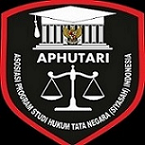Kriminalisasi Nilai Moral: Konstruksi Kebijakan Kriminal di Negara Muslim Modern
Abstract
Criminalization of moral values refers to the legalization of prohibitions on behavior that is considered contrary to religious, ethical, or customary norms, although it does not always involve direct violations of the rights or interests of others. Unfortunately, the establishment of criminal policies based on moral values is often considered an expression of national identity based on religion, but in practice it often triggers heated debates about legal legitimacy, social justice, and violations of individual rights. This study aims to critically analyze the phenomenon of criminalization of moral values in criminal policies in modern Muslim countries. In addition, it focuses on identifying the main elements that form criminal policies based on morality, evaluating their impact on social justice and human rights, and proposing an alternative framework that aims to create harmony between religious norms and universal values. This study uses a normative legal research method using a comparative approach. The data collection method is collected using library research, then analyzed qualitatively and presented descriptively. The results of the study show that the criminalization of moral values in the criminal policies of modern Muslim countries creates a dilemma between religious norms and legal needs that are relevant to social reality, often causing injustice and repressive social control. To overcome this, an inclusive approach is needed, such as proportionality, restorative justice, and community participation, in order to create harmony between religious morality, substantive justice, and the needs of modern society, while strengthening legal legitimacy and social cohesion.
Keywords
Full Text:
PDFReferences
Ahmad Dhiyaul Haq Mahsyar, Alfiansyah Anwar, dan Umar Sulaiman, ‘Islam Sekuler di Turki dan Pemikiran Kemal Ataturk’, Carita: Jurnal Sejarah dan Budaya, Vol. 2 No. 1 (2023), hlm 18-32.
Becky Pettit dan Carmen Gutierrez, ‘Mass Incarceration and Racial Inequality’, American Journal of Economics and Sociology, Vol. 77 No. 3 (2018), hlm 1153-1182.
Chloe Kovacheff, Stephanie Schwartz, Yoel Inbar, dan Matthew Feinberg, ‘The Problem With Morality: Impeding Progress and Increasing Divides’, Social Issues and Policy Review, Vol. 12 No. 1 (2018), hlm 218-257.
Emil Sliwinski, ‘Principle of Proportionality as a Threat to Criminal-Law-Related Fundamental Rights’ New Journal of European Criminal Law, Vol. 14 No. 1 (2023), hlm 327-344.
Farhat Aziz dan Muhammad Yousuf, ‘The Role of Family in Social Harmony and Sustainable Development: A Study in Islamic Perspective’, Al-Basirah, Vol. 11 No. 1 (2022), hlm 81-94.
Fhadli Nur Hudzaifah, ‘Development of Renewal in Islamic Law and Human Rights in the Modern World’ , Islamic World Journal, Vol. 1 No. 1 (2023), hlm 7-13.
Franklin G. Miller, ‘Liberty and Protection of Society During a Pandemic: Revisiting John Stuart Mill’, Perspectives in Biology and Medicine, Vol 64 No. 2 (2021), hlm 200-210.
Fuad Syaifuddin Nur, Muhammad Zulfadli, Gunawan Arifin, Kasman Abdullah, dan Aminuddin Salle, ‘Responsive, Integrity, Morality and Fairness Law Enforcement as Social Change Instrument’, Papua Law Journal, Vol. 1 No. 1 (2016), hlm 41-61.
Hasan Bisri, ‘Hukum Islam dan Perubahan Sosial: Telaah atas Ijtihad Fardi dan Jama’i’, Tajdid, Vol. 26 No. 2 (2019), hlm 187-214.
Javier Wilenmann, ‘Framing Meaning Through Criminalization’, New Criminal Law Review, Vol. 22 No. 1 (2019), hlm 3-33.
Levi Adelman, Maykel Verkuyten, dan Kumar Yogeeswaran, ‘Moralization and Moral Trade-Offs Explain (In)tolerance of Muslim Minority Behaviours’, European Journal of Social Psychology, Vol. 51 No. 6 (2021), hml 924-935.
Nawawi Marhaban, ‘The Criminalization of the Qur’an Perspectives and It’s Contextualization in Indonesia’, Jurnal At-Tibyan: Jurnal Ilmu Alqur’an dan Tafsir, Vol. 6 No. 2 (2021), hlm 361-377.
Nur Fadhilah Mappaselleng dan Zul Khaidir Kadir, Kriminologi: Esensi dan Perspektif Arus Utama (Yogyakarta: Trussmedia Grafika, 2017).
Re’em Segev, ‘Reason for and Against Criminalization: Discussion of the Realm of Criminal Law’, Jerussalem Review of Legal Studies, Vol. 18 No. 1 (2018), hlm 16-37.
Saleh Najafpour, Abbas Tadayyon, dan Mohammad Jafar Saed, ‘Foundation and Examples of Leniency Institutions in the Islamic Penal Code’, Comparative Studies in Jurisprudence, Law, and Politics, Vol. 6 No. 1 (2024), hlm 252-269.
Thomas Sobirk Petersen, Why Criminalize: New Perspectives on Normative Principles of Criminalization (Springer: Cham, 2019).
Tia Sheree Gaynor, ‘Social Construction and the Criminalization of identity: State-Sanctioned Oppression and an Unethical Administration’, Public Integrity, Vol. 20 No. 1 (2018), hlm 358-369.
V. A. Nomokonov, ‘Anti-Criminal Policy: Moral Foundation’, Bulletin of L. N. Gumilyov Eurasian National University Law Series, Vol. 147 No. 2 (2024), hlm 211-218.
Veronika Szontagh, ‘The Chances of Restorative Justice in Hate Crime Cases’, Hungarian Journal of Legal Studies, Vol. 61 No. 3 (2020), hlm 313-324.
Yazid Bustomi, ‘The Relevance of Behavior of Law Theory to Law Enforcement in Indonesia’, Jurnal Hukum Persada, Vol. 9 No. 1 (2022), hlm 53-64.
Zul Khaidir Kadir, ‘Menggugat Netralitas Hukum Pidana: Perdebatan Ideologis di Balik Kebijakan Kriminal di Negara-Negara Liberal’, Eksekusi: Jurnal Ilmu Hukum dan Administrasi Negara, Vol. 2 No. 4 (2024), hlm 380-400.
DOI: https://doi.org/10.24952/el-thawalib.v6i1.14553
Refbacks
- There are currently no refbacks.









Editorial Office Board :
Kampus UIN Syekh Ali Hasan Ahmad Addary Padangsidimpuan
Jl. T Rizal Nurdin No.Km 4, RW.5, Sihitang, Padangsidimpuan Tenggara, Kota Padang Sidempuan, Sumatera Utara 22733
 Jurnal El-Thawalib is licensed under a Creative Commons Attribution-ShareAlike 4.0 International License.
Jurnal El-Thawalib is licensed under a Creative Commons Attribution-ShareAlike 4.0 International License.
View My Stats






